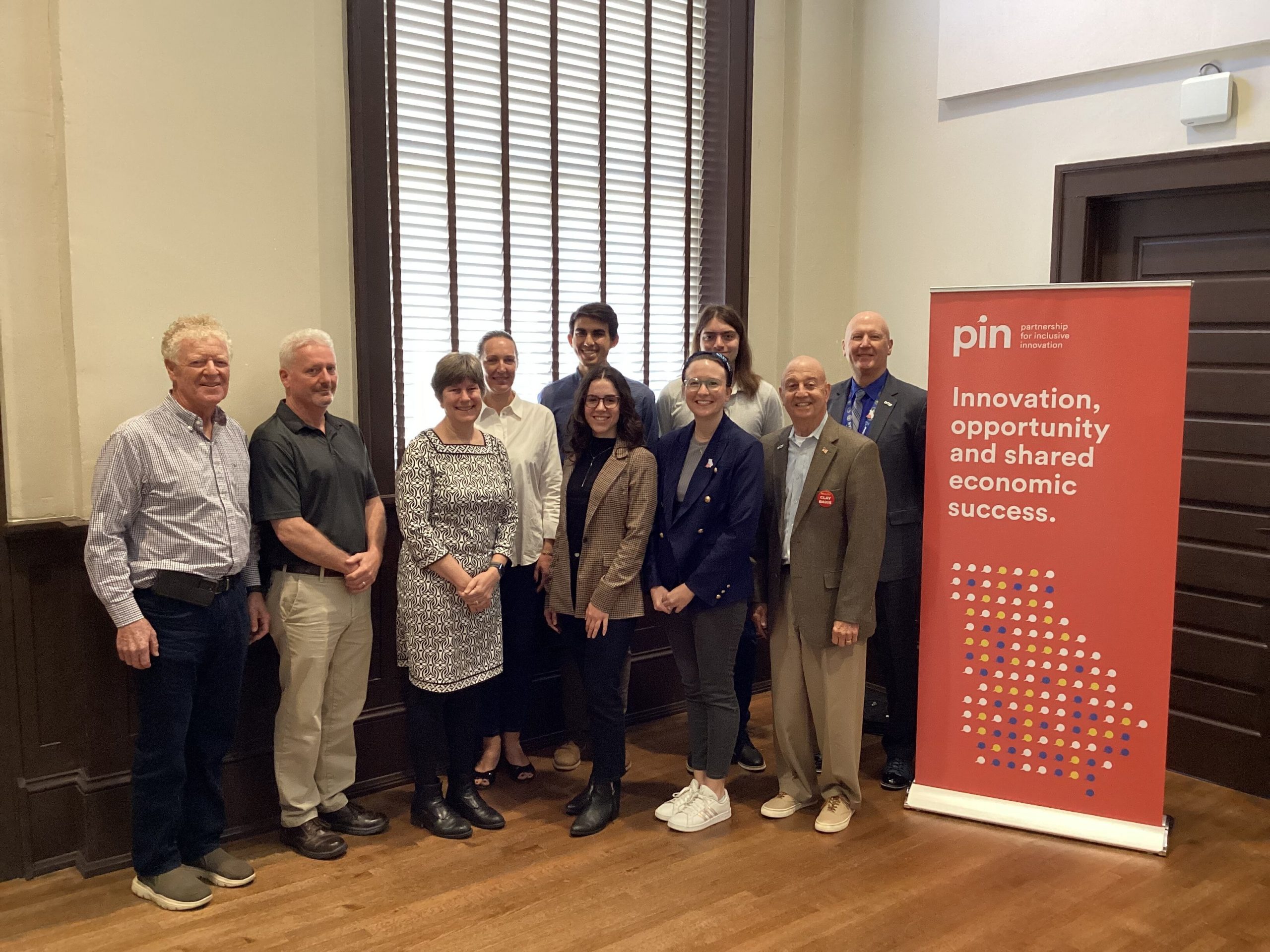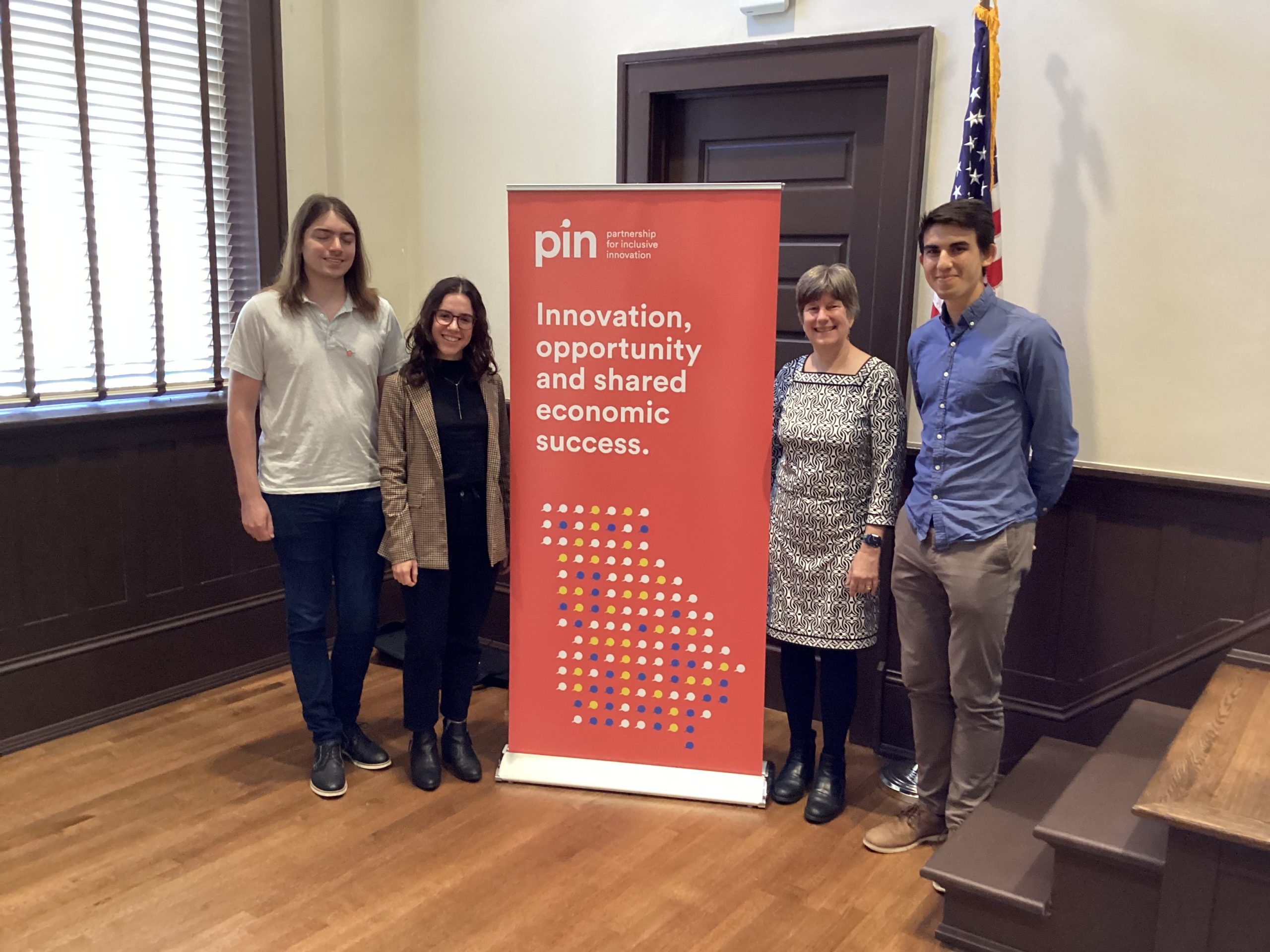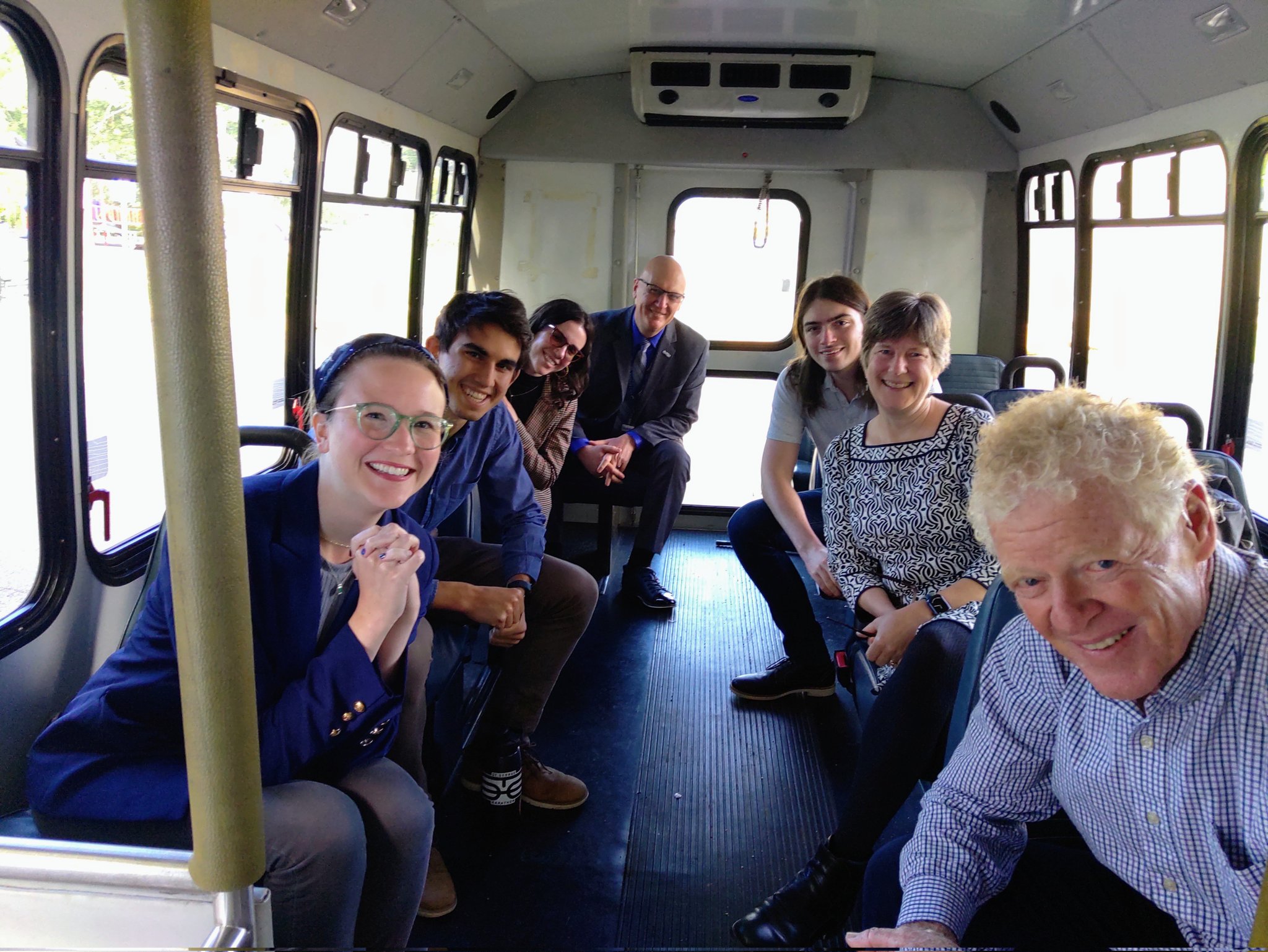Georgia Smart 2021 Cohort Closing Presentations
Community Connectivity Community-Research Team Closes with Community Engagement Event
By Madison Davis
The Partnership for Inclusive Innovation (Partnership) recently held an event to celebrate the 2021 Georgia Smart Communities Challenge (Georgia Smart).
Georgia Smart is a community-research assistance program provides funding and technical assistance to empower them to envision, explore, and plan for a smart future. The 2021 cohort included the cities of Woodbury and Concord, and Pike and Spalding counties. Leaders in these communities worked together with researchers to expand and enhance broadband access and connectivity in their jurisdictions and explore options for improving service quality while remaining affordable to end-users.
As part of this project, Georgia Tech researchers from the College of Computing, Ada Gavrilovska, associate professor, and Ellen Zegura, professor and Stephen Fleming Chair in Telecommunications, led teams of student researchers who focused on emerging network infrastructure technologies, broadband applications, and service quality. The communities and research teams were invited to Spalding County to present their experiences and celebrate their accomplishments on Sept. 28, 2022.
Stephanie Broxton, the Partnership’s community research manager, opened the event. “We are here to celebrate today what the cohort was able to accomplish [in 2021],” she said.
The presentations began with Spalding County Manager Steve Ledbetter, who discussed the county’s 35-mile ring of connectivity. Broadband infrastructure installed on water towers throughout the county in the shape of a ring was used to wirelessly connect households and areas that did not already have broadband service. Ledbetter concluded his presentation with a challenge to the audience to shift the existing broadband paradigm and rethink what it means to have access to high-speed internet.
“How do we afford our community to have high-speed internet?” Ledbetter asked, setting the stage for the research the team completed.
Gavrilovska presented the findings from her research team’s comparisons of different infrastructure models for providing connectivity in constrained or isolated environments. Her team, including students Ketan Bhardwaj, Vaibhav Bhasole, and Carol Hsu, assessed the communities in the GA Smart cohort to compare equipment and infrastructure needs, existing functionality constraints, and various other needs to identify the best solutions for each community.
“We have learned a lot on the research side, so there are certain things we can share with communities and transfer some of the skills from working with the [test networks],” Gavrilovska said.
Zegura presented the findings from her research team’s measurements of service network performance in the city of Concord following the deployment of its Ubiquiti-based municipal wireless broadband system. Her team, which included students Alex Elliott, Beatriz Palacios Abad, and Eric Greenlee, used small computers known as Raspberry Pis and smart phones as hot spots near high-traffic locations to track latency spikes and identify network performance issues between April and July 2022. The team concluded that the municipal internet service provider (ISP) was beating other competitive options in terms of latency and upload speeds, costs, and uptime.
The measurement apparatus is now pending deployment in Pike County and is ready for deployment in additional communities that may be interested, Zegura said. She also provided insights into related work her research team is conducting that could provide network planning opportunities for the GA Smart cohort and other communities.
“We know line of sight obstructions affect performance, so if network planning tools could be more aware of built environment and natural environment obstacles that could assist with more robust network design,” Zegura said.
The presentation included a visualization of the state of Georgia to show where households are currently served by private ISPs and demonstrate coverage gaps. She concluded the presentation by recommending that municipalities deploy community-based mapping platforms to track coverage across their jurisdiction. She emphasized the need to use that data as leverage in decision making and as an accountability tool to inform discussions around connectivity in underserved areas, particularly as federal and state funding opportunities present themselves to expand broadband access.
“[Sometimes] the money goes not necessarily where the need is but where the politics are,” Zegura says. “[Decision-making] won’t be politics free, but these challenge processes are meant to add data to those conversations and data to that decision-making.”
Following the presentations, attendees took a bus tour of Spalding County to see new some of the new broadband infrastructure firsthand.
To learn more about the Georgia Smart 2021 cohort, you can view the final presentation video below.



 October 19, 2022, 2:10pm EDT
October 19, 2022, 2:10pm EDT
No Comments